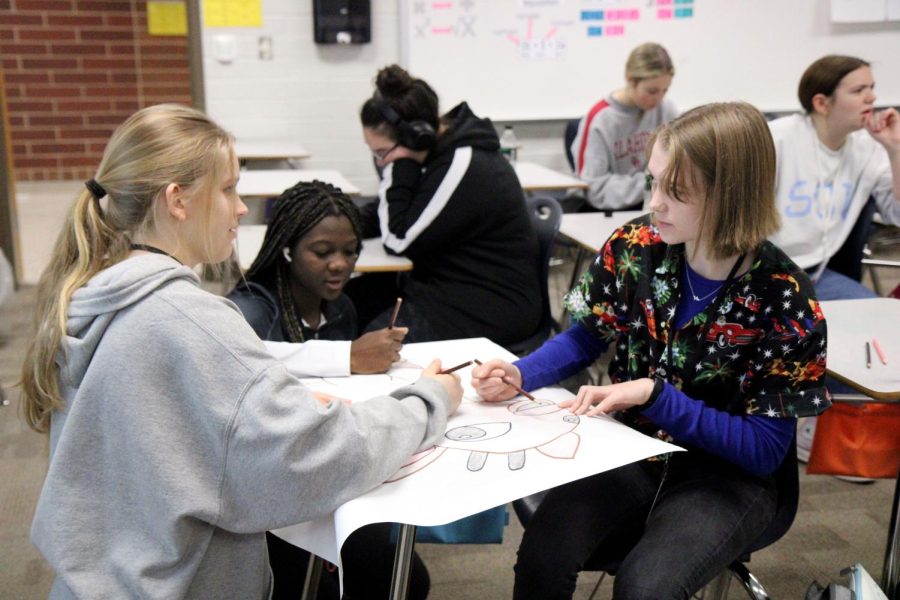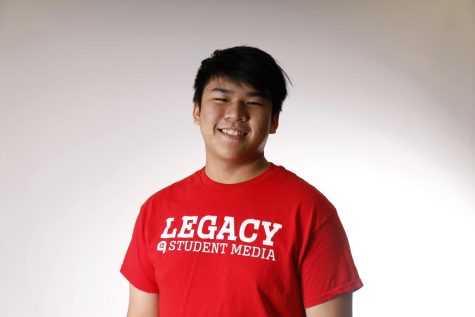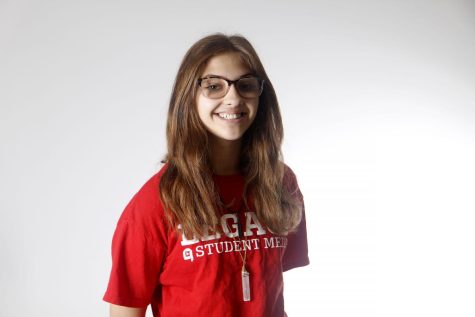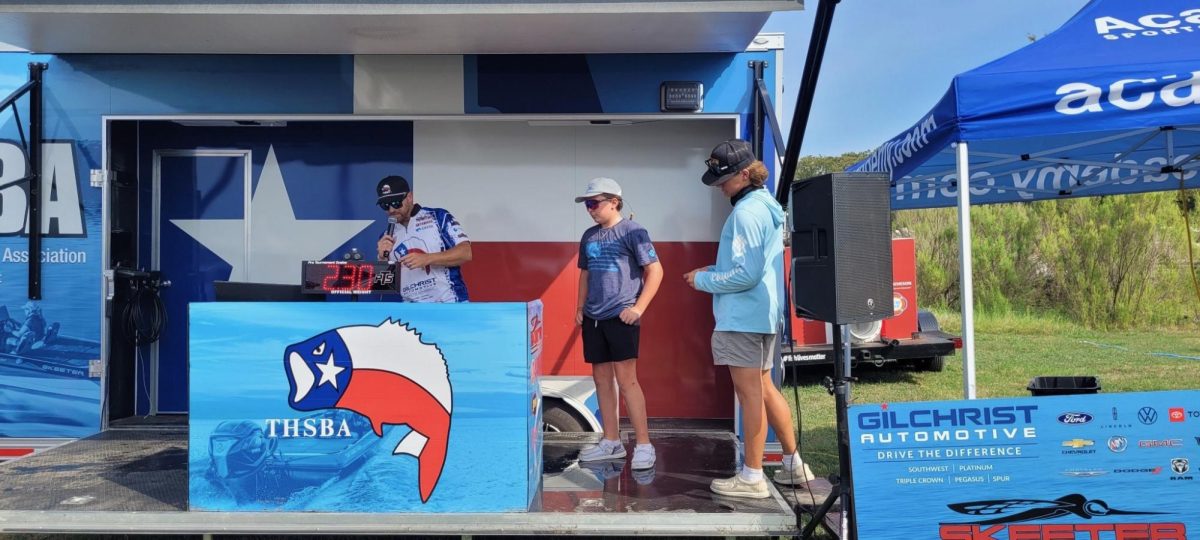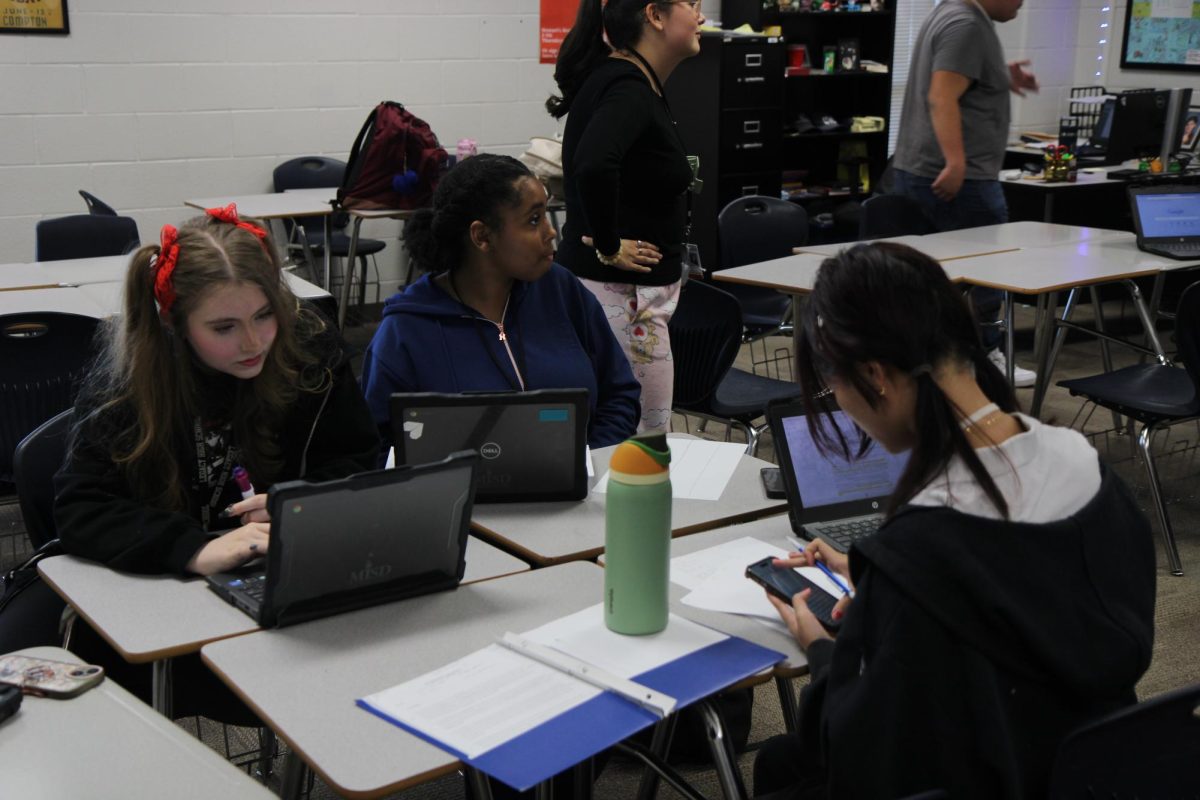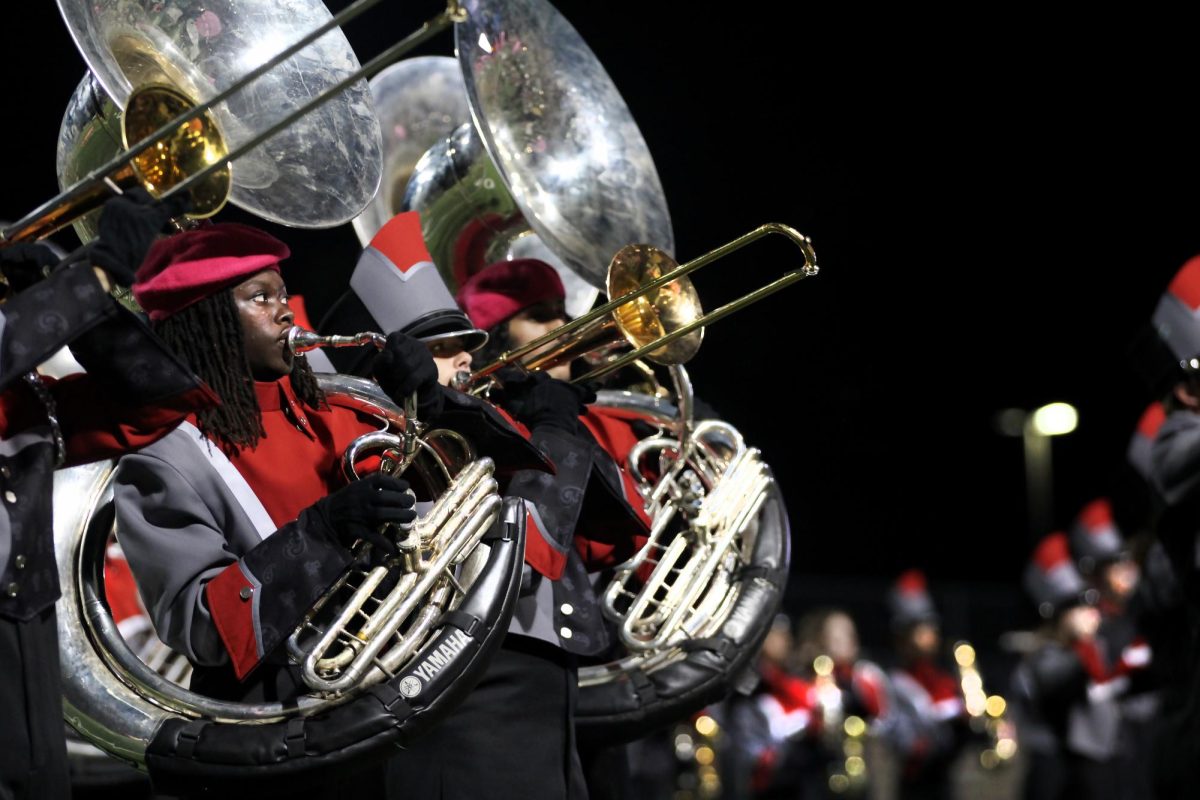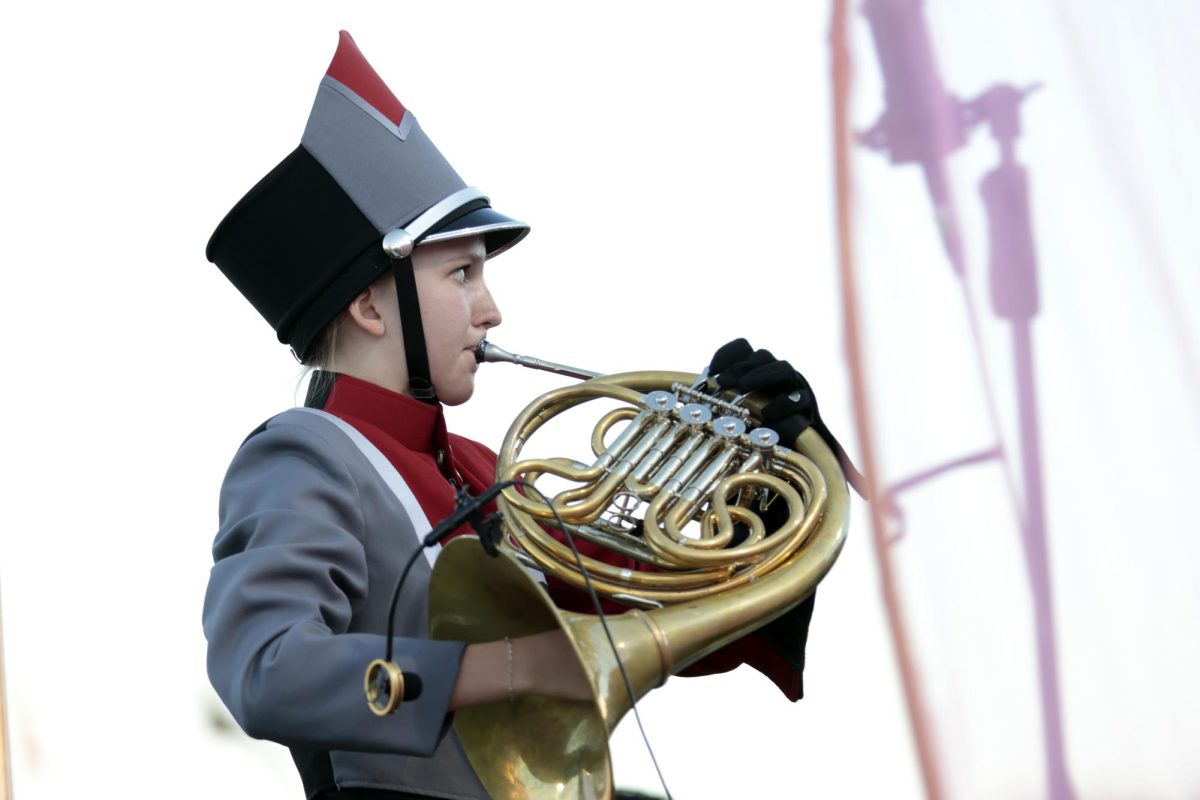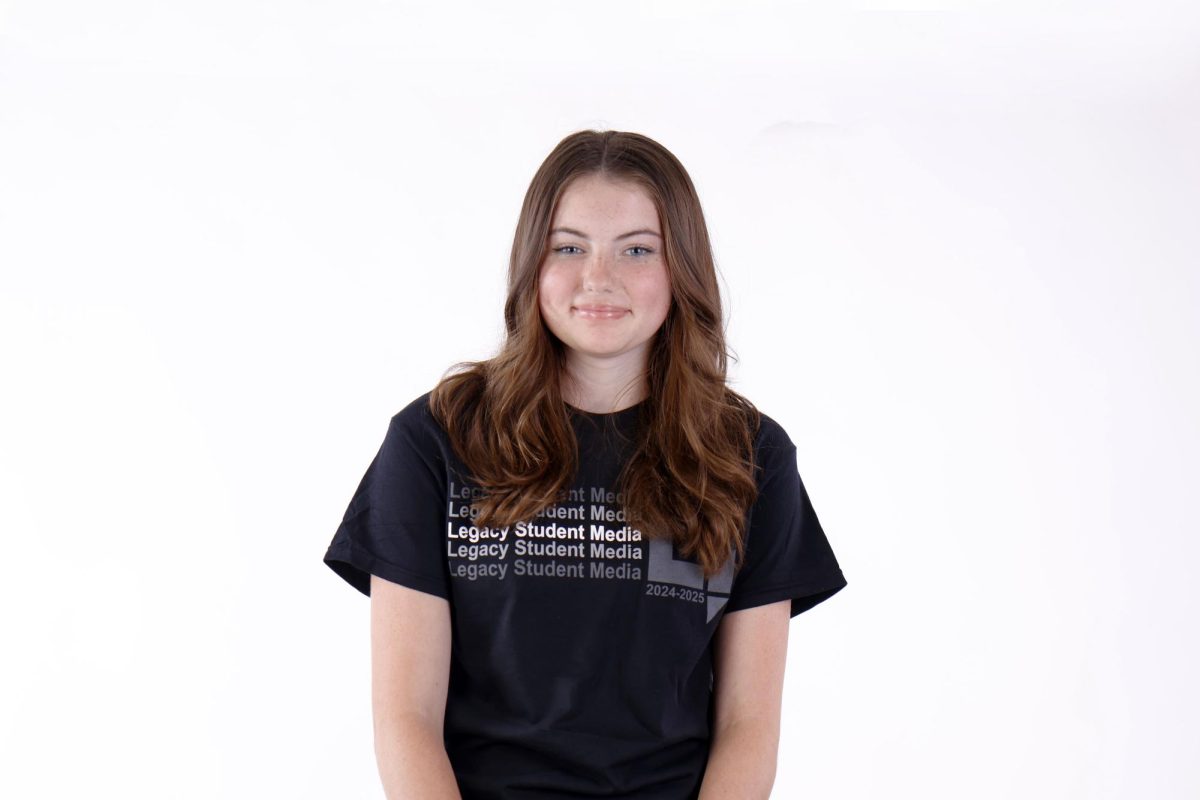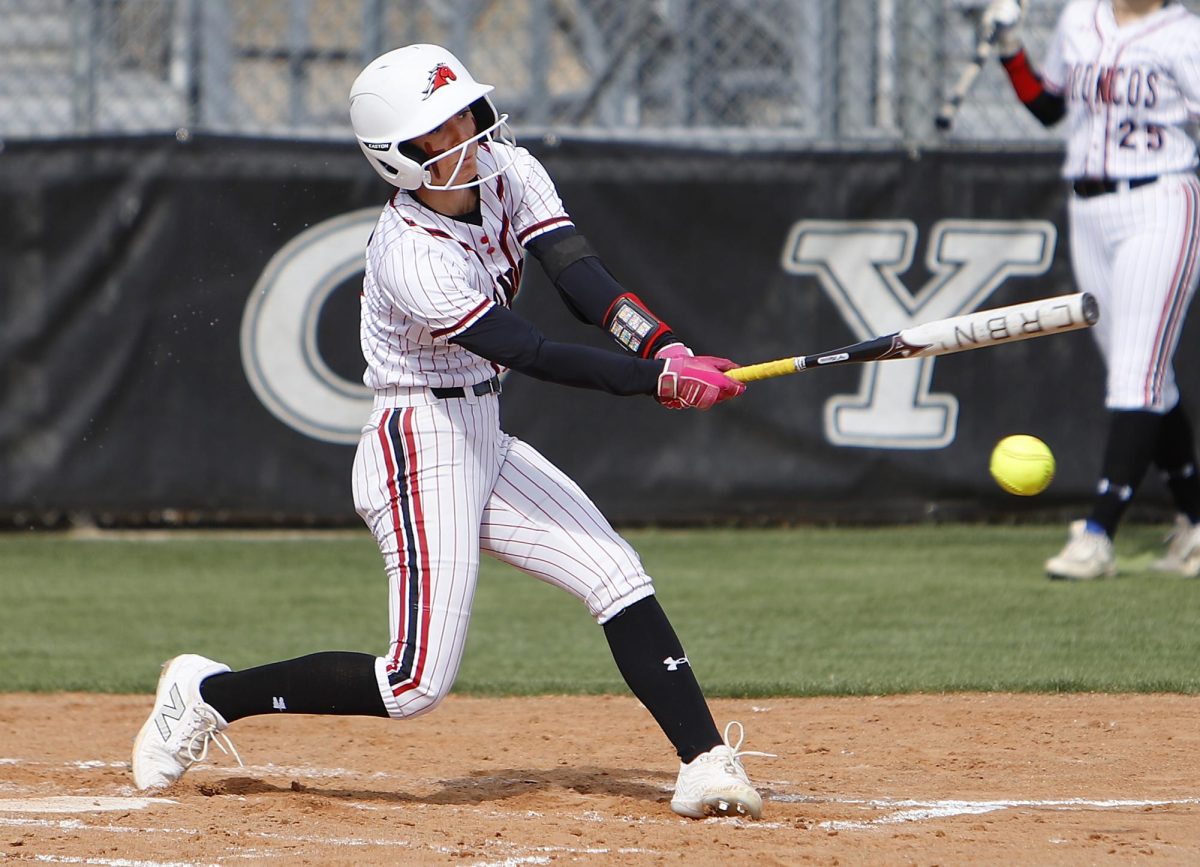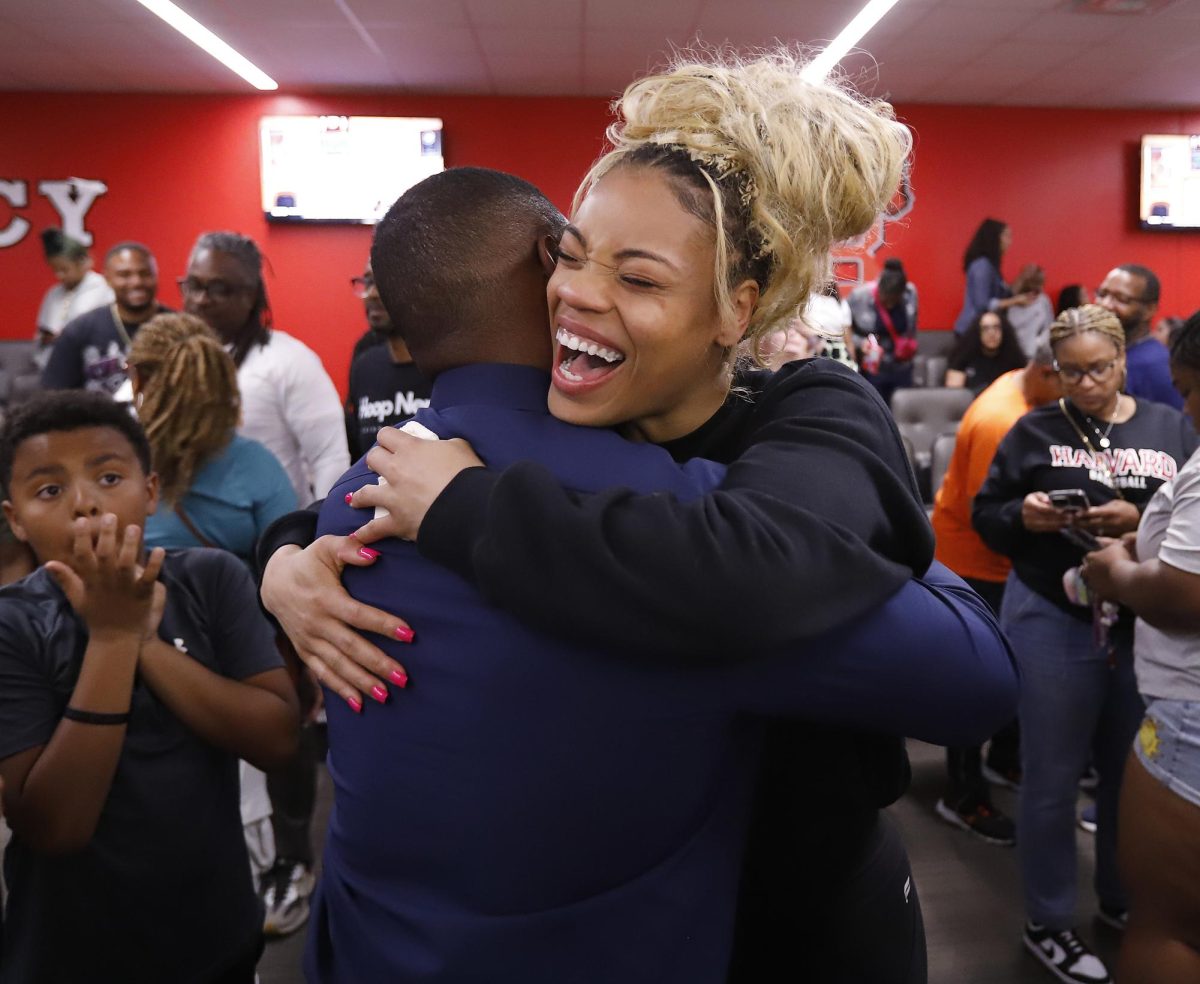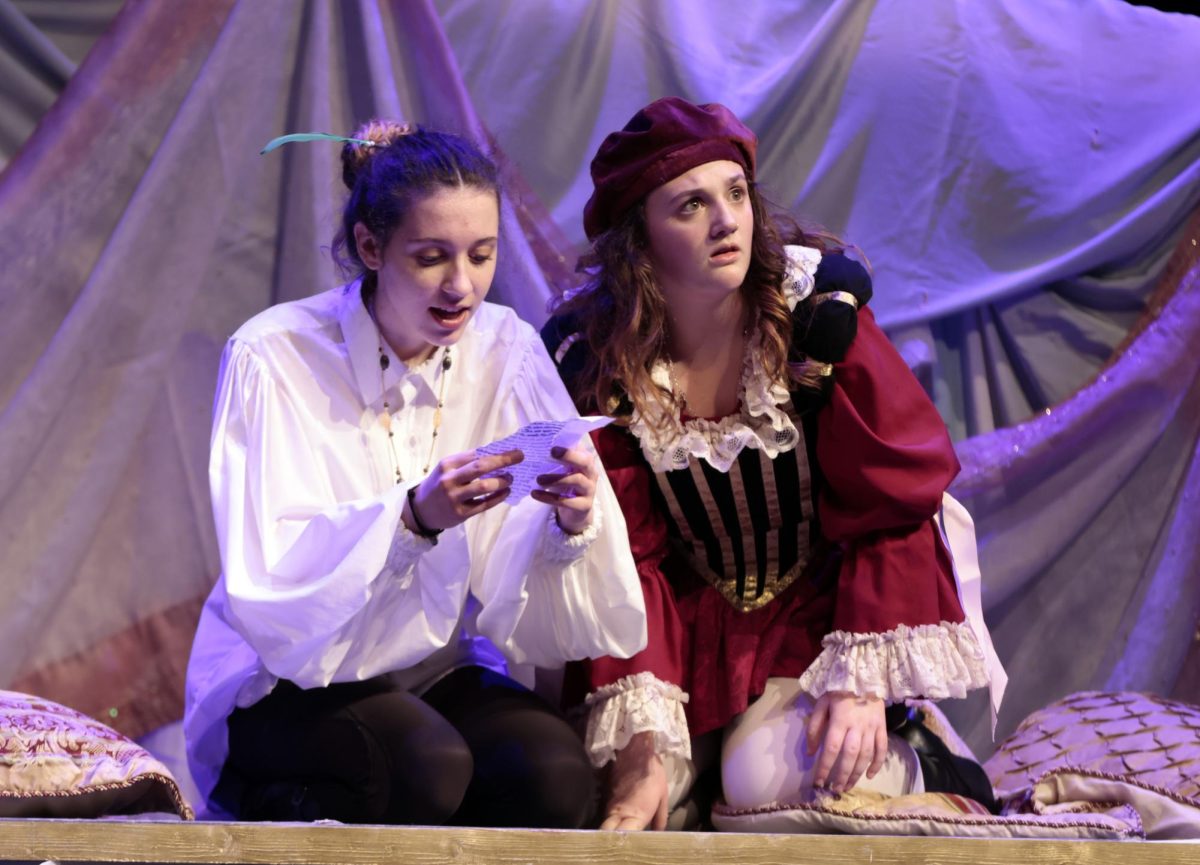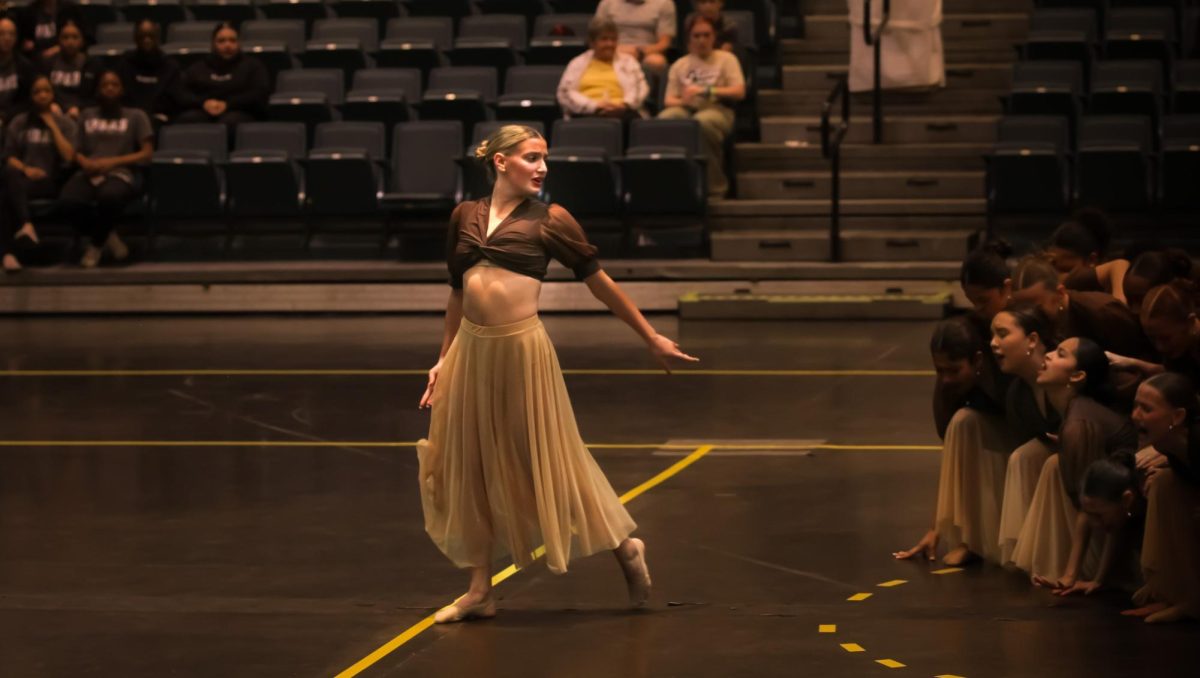She watches as her squad enters her room; talking, joking, and ready to learn. Ms. Michelle Springs gets their attention to start the meeting of the Hope Squad.
Ms. Diana Guerrero, Algebra I teacher, along with Ms. Springs, SPED Inclusion teacher, volunteered to sponsor the Hope Squad in 2021. As she is getting her master’s degree in counseling, Ms. Springs thinks Hope Squad will further her understanding of suicide and teach her how to better connect with students.
“We want people to understand that suicide is a hard thing to talk about, but it’s an okay thing to talk about,” Ms. Springs said. “If we can eliminate the stigma [around suicide], even people that aren’t in the Hope Squad [and] know somebody that is suffering from suicidal thoughts, that they’re okay with going and talking to them.”
Compared to other clubs Hope Squad is new, but the national organization started in 2004. After one of his students took their life, high school principal Dr. Gregory A. Hudnall created the Hope Squad in a neighboring high school. His thought was that if he can stop suicide at that school, then he can stop it anywhere. Dr. Hudnall gathered a group of students trusted by their peers with a common goal, to stop suicide and any causes of it.
Senior Emma Holman shares the need to prevent suicide very adamantly with her peers during the group’s meetings.
“We’re just a group of people elected by our peers to be there for people who need us,” Holman said. “Suicide rates are really high, there are over 200 suicide attempts daily, and it’s something that is preventable. We hope to be there for as many people as we can.”
This semester, Hope Squad started its curriculum to handle different situations and teach members the correct way to get someone the help they need. Junior Emily Jackson battled with depression and wants to use her experience to help others.
“We’re learning how to help people who are struggling with mental illness and help them feel loved and not shamed for doing it,” Jackson said. “I hope to be somebody that is real and authentic. Also, be a genuine person that people can go to and trust. I want to make a change and actually change lives.”
Any student can contact a Hope Squad member through social media or find them in school. Also, once a month, they have a table at lunch to try and get their names and faces known by students. When a student reaches out to a Hope Squad member, they will listen and help get the student proper help by connecting them to the right people.
“It’s important to know that if you are suffering from a mental illness, that they’re on campus, with you, and that we are not here to say ‘that person is really struggling’ but that we are here to get you to the right people,” Ms. Springs said. “There are multiple outlets that you can go to but some people aren’t or might not be comfortable with that. They might just be comfortable talking to a friend. And so that friend might be a Hope Squad member and in hopes, that person can help them get to the right people that need to be taken to help them.”



